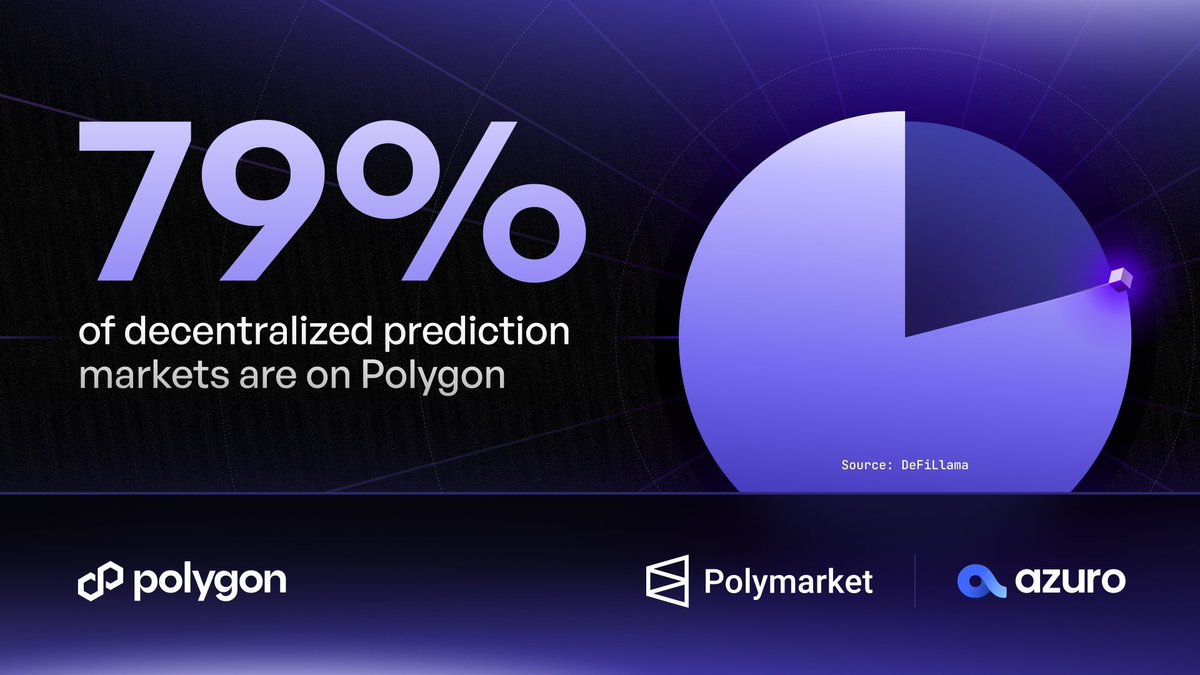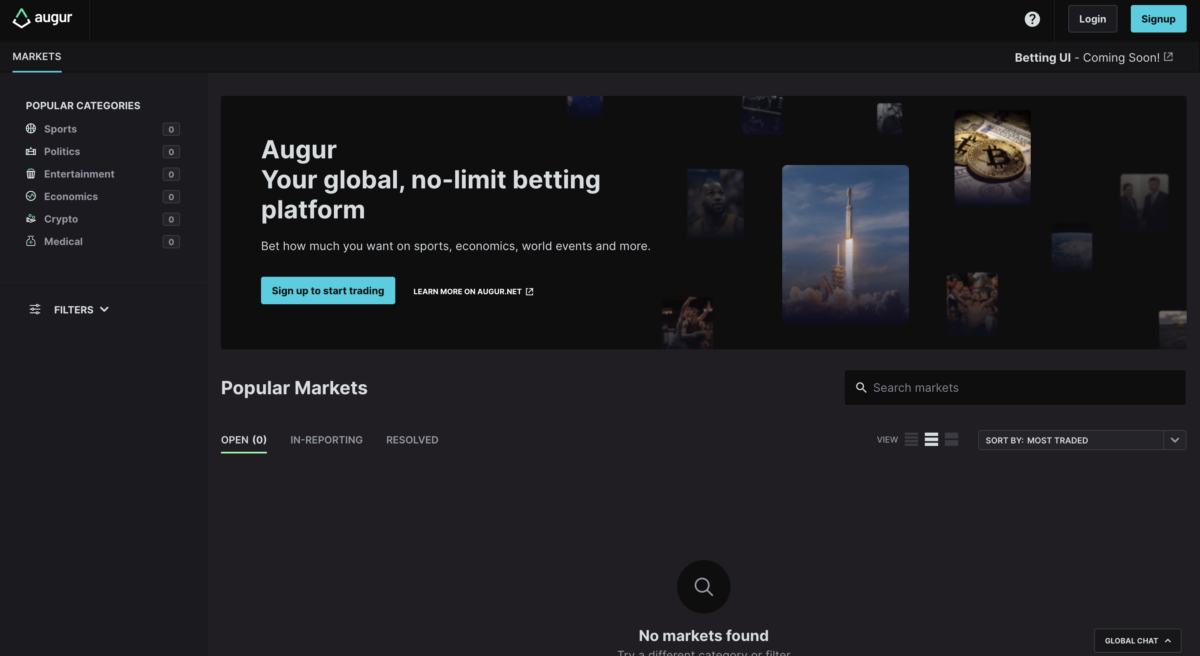How Blockchain Prediction Markets Are Transforming Sports Betting in 2025

Blockchain prediction markets are fundamentally reshaping the landscape of sports betting in 2025. No longer confined to regional sportsbooks or opaque betting exchanges, crypto-native platforms now empower users to wager on global sporting events with unprecedented transparency, speed, and accessibility. This seismic shift is attracting a new generation of tech-savvy bettors eager for decentralized solutions and higher returns.

The New Era: How Blockchain Is Disrupting Sports Betting
In 2025, the fusion of blockchain technology with sports betting has moved from niche experiment to mainstream phenomenon. Decentralized prediction markets operate on public blockchains, cutting out traditional middlemen and regulatory bottlenecks. The result? Anyone, anywhere can bet on the outcome of an NFL game, UFC fight, or Champions League match using cryptocurrencies like USDC or ETH.
Platforms such as Polymarket, Azuro, SX Bet (formerly SportX), Augur, and Zeitgeist are at the vanguard of this movement. These platforms leverage smart contracts to automate settlements and record every transaction on-chain for full auditability. The implications are profound: no more delayed payouts, regional geo-blocking, or opaque odds-setting by bookmakers.
The Top 5 Crypto Prediction Platforms Revolutionizing Sports Betting in 2025
Top 5 Blockchain Sports Prediction Platforms in 2025
-

Polymarket – Recognized as the world’s largest prediction market, Polymarket enables users to bet on sports outcomes and real-world events using blockchain technology. In 2025, it made headlines by re-entering the U.S. market after acquiring QCEX, a CFTC-licensed exchange, ensuring compliant and transparent sports betting for American users.
-

Azuro – Azuro is a leading decentralized sports prediction protocol built on Ethereum and other EVM-compatible chains. It empowers operators to launch their own prediction markets, offering global access, low fees, and transparent odds, making it a favorite among crypto-savvy sports bettors.
-

SX Bet (formerly SportX) – SX Bet stands out for its peer-to-peer, on-chain sports betting model, where users can create and trade bets directly with others. Operating on Polygon, it features fast settlements, low fees, and a wide range of sports markets, attracting a growing community of decentralized bettors.
-

Augur – As one of the pioneers of blockchain prediction markets, Augur continues to offer open, non-custodial betting on sports and other events. Its decentralized oracle system ensures trustless resolution of outcomes, appealing to users seeking transparency and censorship resistance.
-

Zeitgeist – Zeitgeist is a Polkadot-based prediction market protocol specializing in sports and event forecasting. With advanced liquidity mechanisms and community-driven governance, Zeitgeist provides a robust and scalable environment for global sports prediction markets.
- Polymarket: The world’s largest prediction market has re-entered the U. S. after acquiring QCEX and gaining CFTC approval. Polymarket’s liquidity and diverse event coverage make it a go-to for major sporting events.
- Azuro: Focused on creating modular prediction infrastructure for Web3 betting apps, Azuro offers seamless integration for decentralized sportsbooks across multiple chains.
- SX Bet (formerly SportX): Built specifically for peer-to-peer sports betting using crypto, SX Bet emphasizes low fees and instant settlements, all without relying on centralized operators.
- Augur: One of the earliest Ethereum-based prediction markets, Augur remains relevant thanks to its open-source approach and robust community-driven event creation.
- Zeitgeist: Built on Polkadot’s ecosystem, Zeitgeist brings high-speed execution and cross-chain compatibility to sports prediction markets.
The Advantages Driving Mass Adoption in 2025
The rapid rise of these blockchain-based platforms is driven by several key advantages:
- Global Accessibility: With no geo-blocking or national restrictions, users from any country can participate in major sports betting markets, no VPN required.
- Transparency and Trust: Every bet is recorded on-chain; outcomes are settled algorithmically based on publicly verifiable results. This eliminates manipulation risk and builds user confidence.
- Lower Fees and Higher Payouts: By removing intermediaries like bookmakers or payment processors, decentralized platforms offer lower transaction costs, translating into better odds and higher potential returns for bettors.
- Fast Settlement: Smart contracts ensure near-instant payouts once event outcomes are confirmed, no more waiting days for withdrawals or dealing with platform insolvencies.
This combination of benefits is fueling explosive growth. According to recent industry data, roughly 17% of all iGaming bets were placed using cryptocurrencies in 2024, a figure that continues to climb sharply as more bettors seek out transparent sports betting platforms powered by blockchain technology.
For a deeper dive into how these innovations are disrupting traditional sportsbooks and what it means for both casual fans and professional traders alike, see our feature: How Blockchain Prediction Markets Are Disrupting Sports and Election Betting in 2025.
The Regulatory Landscape: Compliance Meets Decentralization
The evolution of crypto prediction markets has not gone unnoticed by regulators. In a landmark move this year, Polymarket’s acquisition of QCEX enabled it to secure CFTC approval, setting a precedent for compliant operation within U. S. borders while retaining core blockchain principles. Similarly, Kalshi’s expansion into regulated sports contracts demonstrates growing acceptance among policymakers that decentralized finance can coexist with oversight when structured appropriately.
Yet, not every platform takes the same approach to compliance. While Polymarket and Kalshi are blazing a trail for regulated blockchain sports betting in the U. S. , others like Azuro, SX Bet, Augur, and Zeitgeist continue to operate as fully decentralized protocols. This diversity gives users the flexibility to choose between regulated and permissionless experiences, depending on their risk appetite and jurisdictional constraints.
Azuro stands out for its modular infrastructure that enables third-party developers to launch custom betting apps on multiple chains. This composability is driving a new wave of innovation in decentralized sports betting, allowing projects to tailor odds models, liquidity incentives, and user interfaces without reinventing the wheel. Meanwhile, SX Bet (formerly SportX) has cemented its position as a favorite among crypto-native bettors seeking instant settlement and peer-to-peer action across everything from UFC crypto betting to international soccer.
Augur‘s open-source ethos continues to attract a dedicated community that values censorship resistance and market diversity. Anyone can create or participate in markets for niche sporting events or experimental formats, fueling long-tail liquidity that traditional sportsbooks rarely touch. Zeitgeist, leveraging Polkadot’s interoperability, is pushing the envelope on cross-chain prediction markets, enabling seamless movement of assets and data between ecosystems for even greater flexibility.
Key Challenges and What’s Next
Despite these advances, challenges remain. Liquidity fragmentation across chains and platforms can limit market depth for less popular events. User experience hurdles, such as wallet onboarding or gas fees, may deter mainstream adoption until further streamlined. And while regulatory acceptance is growing, uncertainty persists in many jurisdictions about how decentralized platforms will be treated long-term.
Still, the momentum is undeniable. The integration of AI-powered odds modeling with blockchain settlement is already enhancing the speed and accuracy of event pricing, a trend expected to accelerate as more capital flows into the sector. Sophisticated traders are increasingly utilizing blockchain-based prediction markets not just for wagering but also for hedging exposure or arbitraging inefficiencies between platforms.
Why Crypto Prediction Markets Are Here to Stay
The top five platforms provides Polymarket, Azuro, SX Bet (formerly SportX), Augur, and Zeitgeist: are setting a new standard for what’s possible in sports betting blockchain innovation. Their embrace of transparency, instant settlement, global access, and open infrastructure is attracting both retail bettors and institutional liquidity providers.
This new paradigm isn’t just more efficient, it’s fundamentally more fair. By publicly recording every bet outcome on-chain and removing opaque intermediaries from the equation, these platforms are building trust where it matters most: with users themselves.
If you’re looking to explore this rapidly evolving landscape or want practical tips on leveraging decentralized prediction markets for your own strategies, check out our comprehensive guide: How On-Chain Prediction Markets Are Transforming Live Sports Betting in 2024.






